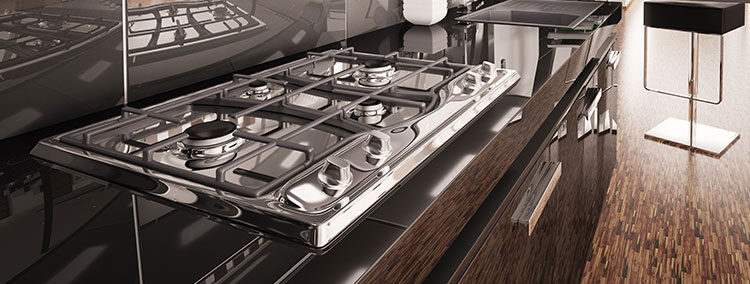
Did you know you could be hurting your cooktops without even realizing it? When you use the appliances the wrong way, they break down, and you have to hire expensive cooktops repair professionals. To help you out, here are some of the ways you might be hurting your cooktops and what you should do about it:
You ignore the manual.
Every appliance you buy comes with a manual that lets you know about the different parts of the appliance and how to use them properly. It’s a fact manuals are boring, but they are vital when it comes to keeping your appliance in top shape.
In addition to detailing the different parts, they also contain special tips on maintenance and correct cleaning and care of the appliance. To keep the appliance in top shape and avoid using it the wrong way, always take time to read them.
You can skip the boring part descriptions, but when it comes to care and maintenance tips, pay close attention to them.
You let the pot cook on its own
You will regularly hear people saying that a watched pot never boils, but when you ignore it, it tends to boil over. When boiling water or heating liquids, you can find it meaningless to wait until it boils, but stepping out of the kitchen can often be dangerous.
When you walk out of the kitchen, the liquids can boil over, and the spills and splashes get stuck on the cooktops. When you let the spills stay on the stovetop for a long time, they are not only unappealing, but they also cause damage to the appliance, which significantly reduces its life.
How can you avoid this? Simple. Never leave the kitchen regardless of what you are cooking. Always be in the kitchen when cooking. When the food starts boiling, reduce the fire, or remove it from the fire altogether. When spills happen, remove them immediately.
You ignore burner clogs.
When you light a burner and notice it not working, it means that it has clogged and you need to clean it. There are plenty of issues that come with clogged burners. When a burner clogs, it corrodes, which shortens the life of the appliance.
When you ignore the clog and don’t clean it early enough, the opening where the gas comes out decreases in size, which can potentially lead to inefficient gas burning and even hot spots in the pan.
When you continue ignoring the clogged burner, it will eventually stop functioning, and in no time, the entire appliance will break down.
To avoid this, you should give attention to the burners, and when you notice them not burning as well as you would want them to, clean the burners.
You ignore debris on the gas stovetop.
Most people that want a sleek modern look on their kitchen go for a glass stovetop. While the stovetop gives your kitchen an elegant appeal, if you let dirt build upon it, it not only provides the kitchen with a cheap look, but also significantly reduces its lifespan.
Nothing is exciting about a glass stovetop full of burn marks, steaks, and baked-on stains, so you should regularly clean the stovetop to remove any gunk that might be there.
You use a lot of water.
Cleaning the cooktop is vital for its life, but you shouldn’t use a lot of water when cleaning it. When you use a lot of water, you put your gas and electric cooktops at the risk of shorting out.
You might have the impression that there is no way gas will be affected by water, but you need to remember that the gas cooktop has electrical components too, such as the control board, high voltage wires, and electric switches.
Clean your cooktops but avoid using a lot of water as you will not only be putting the cooktops at risk, but also yourself.
You use the wrong cleaning products.
While some people use a lot of water on the cooktops, others use the wrong materials. For example, using a razor blade to remove any built-up gunk, cleaning the surfaces with a wire brush, or using chemical cleaners will damage the appliance, and it’s only a matter of time before you hire an appliance repair Alexandria professional to fix the unit.
The post appeared first on Express Appliance Repair